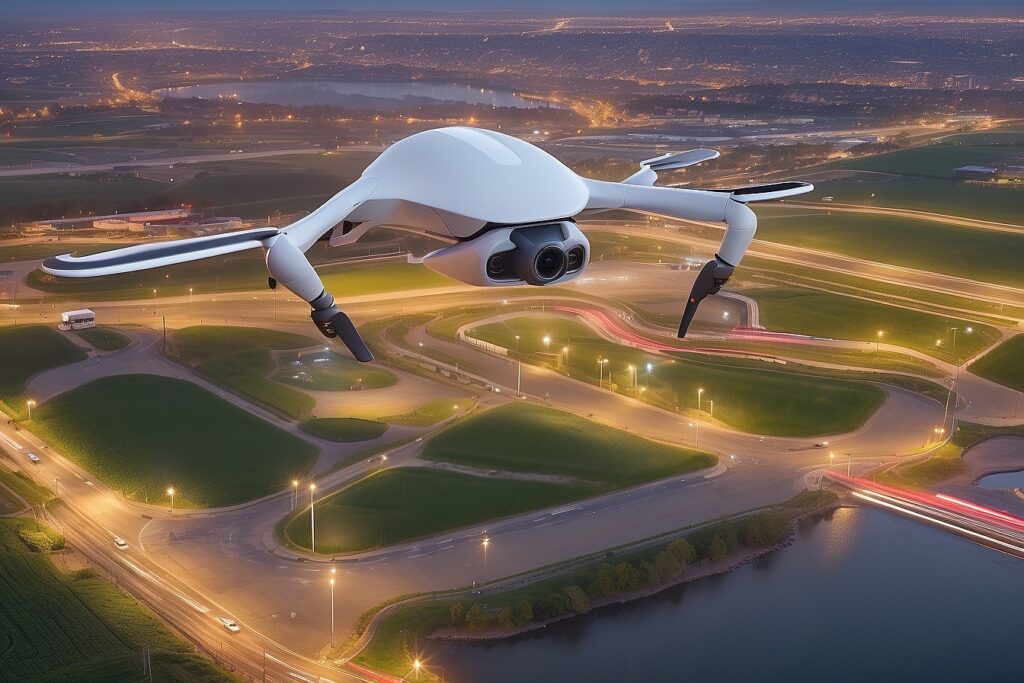Drones Expanding Beyond Last-Mile Deliveries in Supply Chain Operations

In recent years, drones and Internet of Things (IoT) devices have shifted from being mere cutting-edge innovations to becoming indispensable elements within the supply chain industry.
This transformation has had a profound impact on modern logistics, reshaping its landscape in significant ways.
The integration of drones and IoT devices into supply chain operations has revolutionized how businesses manage their logistics processes.
Drones, equipped with advanced navigation and imaging technologies, are now being utilized for tasks such as inventory management, asset tracking, and last-mile delivery.
These unmanned aerial vehicles offer unprecedented speed and efficiency, enabling companies to streamline their operations and reduce costs.
Meanwhile, IoT devices, which consist of interconnected sensors and devices, provide real-time visibility and data insights throughout the supply chain.
By embedding sensors in products, vehicles, and infrastructure, businesses can monitor the location, condition, and performance of their assets at every stage of the logistics process.
This level of visibility allows for better decision-making, improved efficiency, and enhanced customer experiences.
Together, drones and IoT devices are revolutionizing supply chain management by offering greater automation, efficiency, and transparency.
They enable businesses to optimize their operations, minimize risks, and respond more effectively to customer demands.
As a result, they have become indispensable tools for companies looking to stay competitive in today’s fast-paced and increasingly complex global marketplace.
Mark Yong, the Managing Director of Blume Global in Asia-Pacific, emphasizes the significant influence of drones and IoT devices on the industry.
He points out that these technologies have transcended novelty status and are now integral components of daily operations.
Yong highlights the diverse uses of drones in logistics, noting their application in inspecting terminals and container ships. This task, previously labor-intensive and hazardous, has now been made safer and more efficient with the deployment of drones.
“Drones have significantly enhanced the safety and efficiency of these procedures,” he elaborated, emphasizing their pivotal role in surveillance and emergency management.
Expanding the scope of drone operations beyond last-mile delivery marks a significant advancement in logistics. “We’re no longer limited to small package delivery.
Drones are now integral to transporting goods over longer distances, sometimes spanning up to 100 kilometres,” noted Yong. This progression underscores the evolving capabilities of drone technology within supply chain logistics.
Shifting focus to IoT devices, Yong underscored their increasing significance in container logistics. “The decreasing cost of IoT technology has made it feasible to equip every container, not just refrigerated ones, with tracking and monitoring devices,” he pointed out.
This development is revolutionizing cargo tracking and management, providing real-time data on location, condition, and security.
Yong further elaborated on the advantages for refrigerated containers: “IoT devices enable us to monitor conditions inside the containers, such as humidity levels, and detect any signs of tampering.
Previously, this was not just challenging; it was nearly impossible.”
The integration of drones and IoT devices represents a significant leap forward in efficiency and safety within the supply chain industry.
As Yong emphasized, “These technologies are no longer merely about innovation; they’re about delivering tangible value to our operations.”
Another transformative technology in the supply chain landscape is artificial intelligence (AI), according to Yong. “AI has demonstrated significant success in logistics through its ability to analyze data,” he explained.
He highlighted AI’s capacity to predict and manage the intricacies of ship-to-port interactions, leveraging historical data on weather patterns and congestion.
This predictive capability is particularly valuable for shippers seeking precise timing for their cargo arrivals.
“AI has proven to be highly effective, which is why companies are keen to leverage it to enhance their operations,” Yong remarked.
“The return on investment for the use of smart technologies, including AI, has been validated.”



